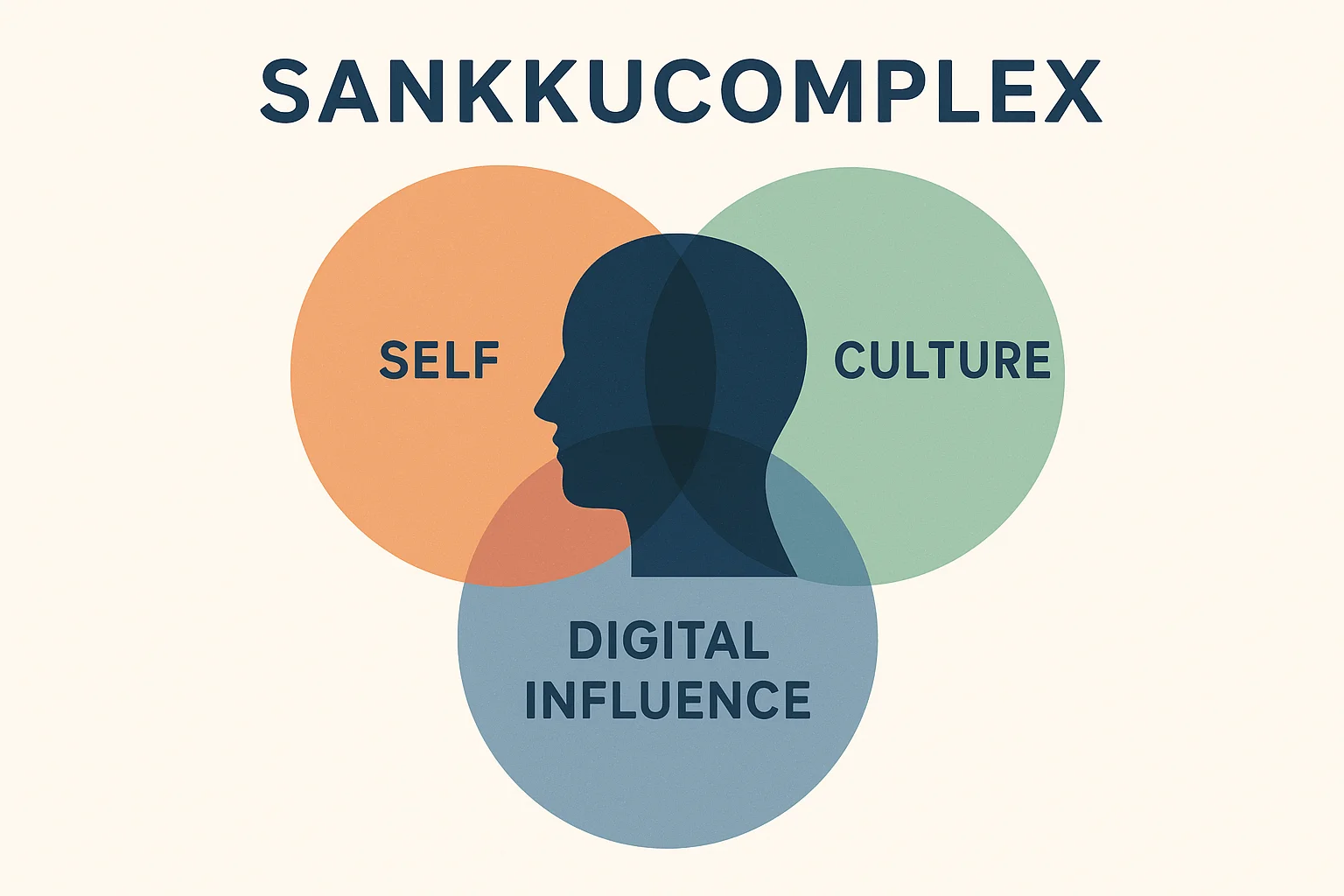Understanding cultural and psychological concepts has never been more important. One term that has emerged in discussions about identity, lifestyle, and online subcultures is sankkucomplex. While it may sound unfamiliar at first, it has strong roots in social behavior, cultural patterns, and even psychology. This article explores the definition, origins, traits, and impact of sankkucomplex, giving you the complete picture in a way that’s easy to digest.
What is Sankkucomplex?
At its core, sankkucomplex refers to a mindset or emotional state linked to being single for extended periods of time. The word itself combines cultural terminology (often with ties to Japanese slang or niche internet communities) with the idea of a “complex,” which in psychology usually means a cluster of thoughts, feelings, or attitudes.
People often use sankkucomplex to describe:
- Feelings of independence that come from not being in a relationship.
- Inner conflicts around social expectations of marriage or dating.
- Identity patterns that blend humor, irony, and self-reflection.
This concept isn’t officially recognized in psychology, but it carries symbolic weight in online communities where people bond over shared experiences of singlehood.
The Origins and Meaning of Sankkucomplex
The rise of sankkucomplex can be traced back to cultural shifts in Asia, particularly Japan and online spaces where youth redefine traditional relationship norms. The word “sankku” itself is believed to connect with “single,” while “complex” borrows from the psychological notion of deep-seated feelings that influence behavior.
Its popularity grew with the spread of internet memes, forums, and youth culture movements that embraced humor as a way to deal with social pressure. Over time, sankkucomplex transformed from being a niche idea into a widely discussed cultural marker.
Myth vs Reality:
- Myth: Sankkucomplex always signals loneliness or sadness.
- Reality: Many who use the term treat it as a badge of independence or self-acceptance.
Characteristics of Sankkucomplex
The defining features of sankkucomplex vary from person to person, but several themes appear consistently:
- Self-awareness: People acknowledge their single status openly, often with humor.
- Cultural resistance: A subtle pushback against traditional norms that equate happiness with marriage.
- Dual emotions: Pride in independence, mixed with occasional insecurity or self-doubt.
- Community-driven identity: Strong connections in online spaces where experiences are shared.
Signs You Might Relate to Sankkucomplex
Here are some relatable scenarios that may resonate with you:
- You enjoy your independence but sometimes feel judged for being single.
- Family gatherings often spark questions like, “When are you settling down?”
- Online communities or memes about single life feel oddly comforting.
- You feel both empowered and conflicted about your lifestyle.
Checklist Example:
| Trait | Common Expression |
| Independence | “I can handle things on my own.” |
| Humor | Sharing memes about single life. |
| Cultural tension | Feeling pressured to marry or date. |
| Emotional swings | Confidence one day, doubt the next. |
The Impact of Sankkucomplex in Modern Society
Sankkucomplex plays a significant role in shaping conversations around love, relationships, and individuality. In countries where marriage is considered a social milestone, people with sankkucomplex often challenge these norms by embracing freedom instead of conformity.
Online spaces, especially forums and social media, have amplified this identity. Memes, jokes, and personal blogs turn sankkucomplex into a shared cultural experience. Instead of being isolated, individuals find solidarity in global networks.
Case Study Example:
In Japan, online communities dedicated to singlehood have exploded in popularity. Many members openly describe their sankkucomplex as both a burden and a strength. While some express frustration at cultural expectations, others celebrate the financial freedom and personal growth that comes with single life.
Dealing with Sankkucomplex – Tips and Strategies
Sankkucomplex isn’t inherently negative. For many, it’s a neutral or even positive part of identity. However, if feelings of isolation or self-doubt arise, strategies can help balance the experience.
Practical Steps to Embrace or Manage Sankkucomplex
- Redefine success: Remember that fulfillment doesn’t depend on relationship status.
- Stay socially active: Build strong friendships and communities outside of romantic ties.
- Focus on personal growth: Develop hobbies, career skills, and creative outlets.
- Seek balance: Acknowledge feelings of loneliness without letting them dominate your identity.
Daily Habits That Help:
- Journaling to reflect on emotions.
- Exercising to boost confidence and health.
- Engaging with communities where independence is celebrated.
Common Questions About Sankkucomplex
Is sankkucomplex a medical condition?
No, it isn’t classified in psychology. It’s more of a cultural or social concept.
Why is sankkucomplex trending online?
Because it resonates with younger generations navigating dating, marriage expectations, and self-identity.
Is it always negative?
Not at all. For some, it’s a lighthearted way of owning their lifestyle.
Sankkucomplex vs Other Complexes
To better understand sankkucomplex, let’s compare it with other cultural and psychological complexes:
| Complex | Definition | Comparison with Sankkucomplex |
| Inferiority Complex | Feeling of inadequacy or low self-worth. | Sankkucomplex isn’t about inadequacy but about singlehood identity. |
| Oedipus Complex | Freudian concept linked to parental attachment. | Sankkucomplex is cultural, not psychoanalytic. |
| Peter Pan Complex | Desire to remain youthful and avoid responsibility. | Sankkucomplex may overlap in lifestyle choices, but it centers on relationship independence. |
This comparison shows that sankkucomplex is unique—it blends humor, culture, and lifestyle rather than strict psychological theory.
Conclusion – Understanding Sankkucomplex Better
Sankkucomplex reflects how modern society is redefining love, independence, and self-identity. While it may stem from cultural pressures or social humor, it has grown into a symbol of empowerment for many people worldwide.
Recognizing sankkucomplex as part of today’s cultural landscape allows us to have healthier, more inclusive conversations. Instead of viewing it through a lens of shame, it can be embraced as a new way of living authentically in a changing world.















Leave a Reply